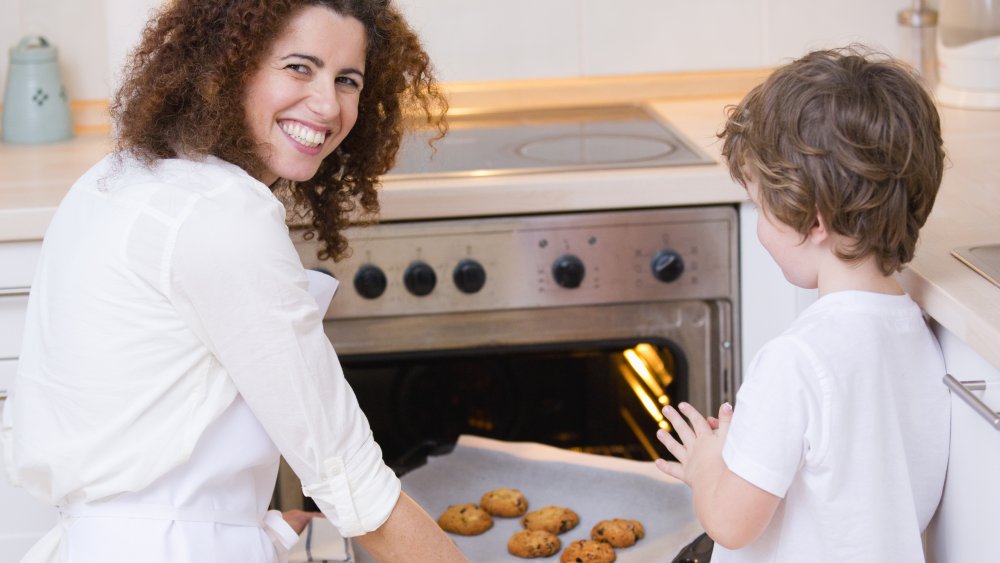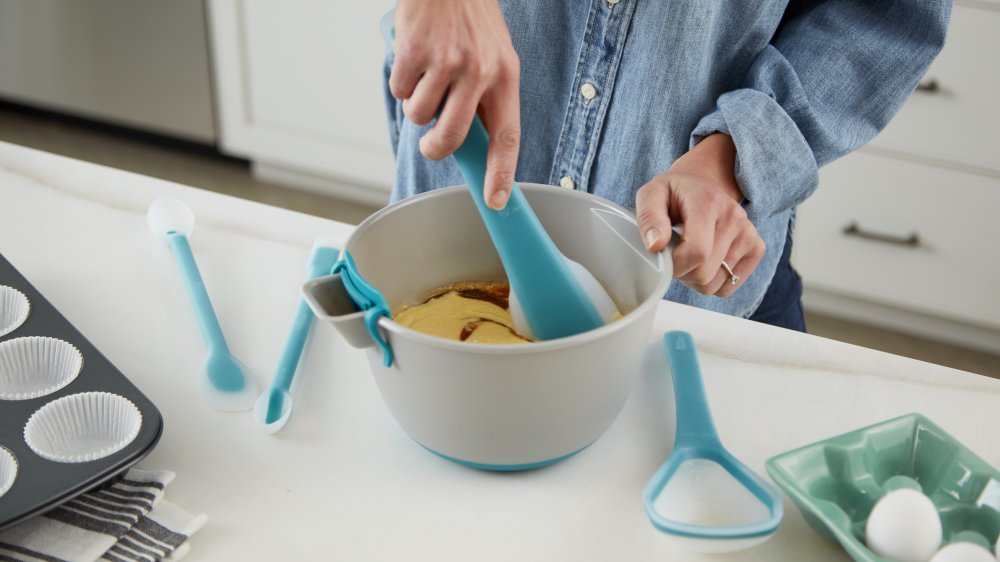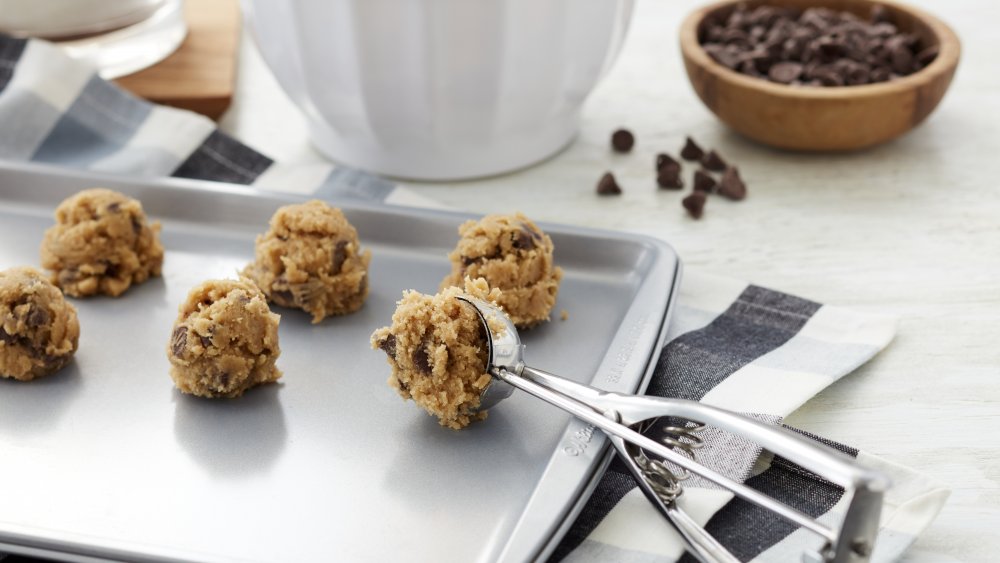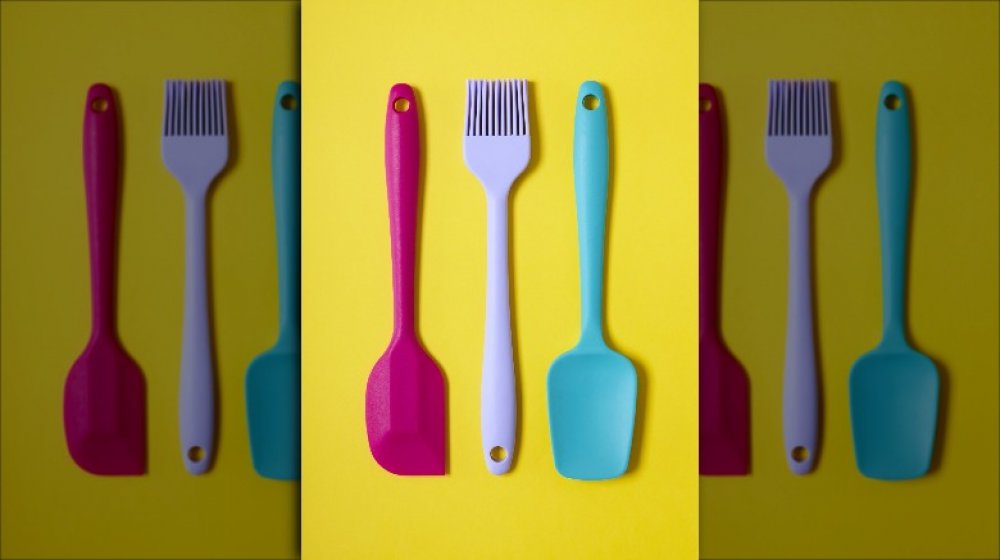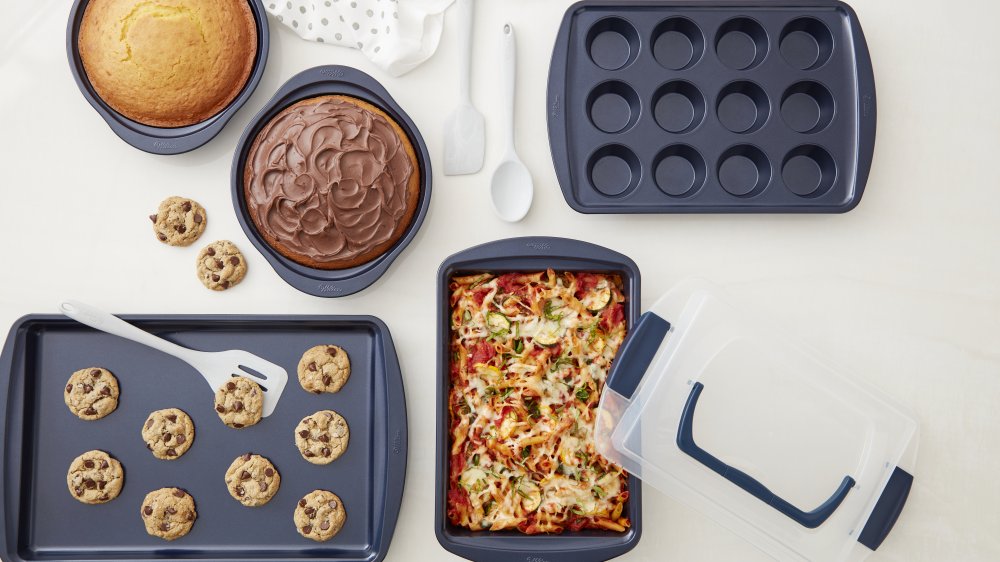The Tools Every Beginner Baker Should Own, According To A Pastry Chef
Are you new to the hobby of baking? It seems like everyone's taking it up these days. Your social media feeds are probably flooded with viral videos of all the latest baking trends, everything from sourdough loaves to frog bread to banana bread to good old peanut butter cookies. You may have marveled at eerily realistic cakes made to look like shoes or body parts or K-Pop stars, or laughed to see teeny-tiny foods like mini pancakes repurposed as cereal.
If all of this baking looks so easy and fun (except, perhaps, for those creepy cakes) but you're not quite sure where to start, the best place is always in the kitchen (duh). But not just any kitchen, a well-equipped one, since successful baking requires more than just a bag of flour and an oven. As with any job, you'll need the right tools, and Elizabeth Nelson, Test Kitchen Manager at Wilton (the global leader in all things cake baking and decorating), is here to walk us through a list of tools every baker needs.
Kitchen basics
For any kind of cooking at all, you're going to need a set of mixing bowls. Whether it's fruit salad, a meat marinade, or cookie dough, if it gets mixed, it needs a bowl. Nelson recommends glass bowls, as she says they come in handy for mixing all kinds of stuff. Cooking, especially baking, is not just an art but a science. And as such, it requires careful measuring of ingredients. In order to accomplish this, you'll need both liquid and dry measuring cups and measuring spoons so you can, as Nelson puts it, "treat your recipes as a formula." (She does not, however, insist that you use beakers and pipettes.)
Knives, of course, are also indispensable. Nelson says that an all-purpose chef's knife – a good quality, sharp one – can slice and dice all manner of ingredients. Finally, you'll round out your arsenal of most-needed equipment with a silicone spatula since these are used not only for scraping bowls but also for stirring batter and spreading icing. According to Nelson, "Your silicone spatula should always be within arm's reach when you're baking."
Nice to have
If you're going to be making pie crusts, rolled biscuits, or rolled cookies (the kind you cut out with cookie cutters, like gingerbread persons), you'll probably want a rolling pin, although a wine bottle can be used in a pinch. Portion scoops are also nice to have if you want to make sure that cookies and cupcakes all come out the same size. It's not just about the aesthetics, after all, since similarly-sized portions finish baking at the same time.
A fine-mesh sieve is useful to have because it can not only strain stuff but also work as a flour sifter – and yes you really should be sifting, since Nelson says this "helps break up large clumps and distributes dry ingredients better." A sieve can also be used to rinse small food items, and if you want to pretty up your desserts, a sieve full of powdered sugar makes for an elegant dusting.
Leveling up
If you're moving beyond the basics into some more advanced baking, you may want more than one spatula, for starters. Nelson recommends an angled one, since "the angled blade keeps finger out of icing while creating a smooth surface." This type of spatula also "come[s] in clutch for loosening baked goods out of the pans if they stick during baking." Another versatile tool is the bench scraper, as this can be used to smooth the sides of cakes, scoop up a pile of chopped ingredients, and scrape gunk (cookie or bread dough) off the counter after you've been giving your rolling pin a workout. (Or you could always do like your mom told you and put down some wax paper first so you don't gunk up the counter in the first place.)
Want to get a little artistic with your cooking? Well, then, you'll need a brush. No, not a paintbrush, a pastry brush. These can be used to brush egg wash or milk over pie crusts or pastries and can also be used for greasing pans with butter and brushing sauces and marinades over food as it's cooking.
Baking essentials
If you're going to be doing any kind of baking at all, you will also need the right baking pans. For a starter set, you should probably get at least a baking sheet, a muffin pan, and several sizes of round cake pans. You may also want to think about acquiring some bake even strips, which are a tool used to insulate the edges of cakes to allow them to bake more evenly. According to Nelson, this will result in "moist, level cakes without crowns, cracks, or crusty edges."
Nelson also points out that the final stage of baking is the part where you let the baked goods cool down. Food being fresh and hot from the oven is one thing, but nobody wants to burn their mouth on a cookie. Cooling grids, she says, will help air to circulate around your food, and this will keep baked goods from becoming soggy as they sit and rest.
